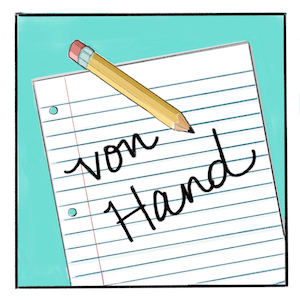In dieser Lektion
Lesen

Johannes: Hallo! Mein Name ist Johannes. Ich bin 16 Jahre alt. Ich komme aus Stuttgart. Meine Familie ist sehr groß. Ich habe eine Mutter und einen Vater und drei Geschwister, einen Bruder und zwei Schwestern. Meine Mutter heißt Anja. Mein Vater heißt Sven. Eine Schwester ist älter als ich, und sie heißt Lea. Lea ist 18 Jahre alt. Meine andere Schwester, Julia, ist 13 Jahre alt. Paul, mein Bruder, ist erst 8 Jahre alt.
Hier sehen Sie den Familienstammbaum von Johannes:

Julia: Guten Tag, ich heiße Julia und komme aus Hamburg. Ich bin 28 Jahre alt. In meiner Familie habe ich einen Vater und einen Bruder. Sie wohnen beide in Hamburg. Mein Bruder heißt Noah und er ist 25 Jahre alt. Mein Vater, Dirk, hat auch einen Bruder, der Andreas heißt, und eine Schwester, Monika. Onkel Andreas hat einen Partner, Thomas, und sie haben zwei Kinder adoptiert, Niko und Anna. Niko ist mein Cousin und Anna ist meine Cousine. Tante Monika ist verheiratet. Ihr Mann heißt Markus.
Hier sehen Sie den Familienstammbaum von Julia. Click on the “+” signs to learn the vocabulary.
Arbeit mit dem Lesen
Sprechen
- Define the following words using descriptions from the family trees: die Mutter, der Vater, die Eltern, der Bruder, die Schwester, das Geschwister, die Tochter, der Sohn, der Onkel, die Tante, der Cousin (or der Vetter), die Cusine (or die Kusine), der Partner, die Partnerin, der Mann, die Frau.
Beispiel: Andreas ist der Bruder von Monika. ODER Andreas ist Monikas Bruder.
Beispiel: Monika ist die Schwester von Andreas.
- In Julias Familie gibt es zwei Kinder (das Kind, zwei Kinder): ein Mädchen und ein Junge. Julia ist das Mädchen und Noah ist der Junge. Haben Sie Mädchen und/oder Jungen in Ihrer Familie? Haben Sie oder Ihre Eltern einen Sohn und/oder eine Tochter?
- Interview: Describe your family to a partner. Your partner will draw your family tree.
Beispiel: Ich habe eine Schwester und einen Bruder. Ich habe auch…
Hören
Video Eins: Sarah und Daniele
Arbeit mit dem Hören
Sprechen
-
- Was bedeutet “Großvater” oder “Opa”? Was ist eine “Großmutter” oder “Oma”? Was sind die “Großeltern”?
- Haben Sie Großeltern? Wie heißen Ihre Großeltern?
Video Zwei: Karl, Laura und Tiradard
Arbeit mit dem Hören
Schreiben

Familienstammbaum: machen Sie einen Familienstammbaum zu Karl, Laura oder Tiradard. Exchange your sketch of the family tree with someone who drew one for another person. Listen again to check the family tree.
Sprechen
Rollenspiel: Spielen Sie die Rolle von der Person von Ihrem Familienstammbaum. Dann stellen Sie “Ihre” Familie vor!
Beispiel: Ich bin Sarah. Ich habe einen Vater und eine Mutter und einen kleinen Bruder….
Strukturen
Personal Pronouns and the Verb haben
You already learned most of the forms of the verb haben. But now let’s expand that knowledge and add the forms for three more pronouns, wir (=we), ihr (=informal you, plural), and sie (=they). Sie (=they) is always the same form as Sie (=formal you), so that makes life easier. Note that xier or they are non-gendered pronouns to replace she or he (read the Kultur section below for more information about those).
| singular | plural | ||
|---|---|---|---|
| ich | habe | wir | haben |
| du | hast | ihr | habt |
| Sie | haben | Sie | haben |
| sie/es/er xier/they | hat | sie | haben |
Sprechen: Pronomen
Now practice asking your classmates what pronouns they use by following the example:
Kultur
Gendered Nouns
As you have already learned, all nouns in German have a class, commonly referred to as a gender (der, die or das). In addition, all nouns referring to people rely on a gender binary, even in their plural forms. This is naturally problematic because it often leads to the use of a masculine generic form. While women and people of other genders might be theoretically included in a masculine generic form, studies show that women and people of other genders are erased from the discourse by using masculine generic forms. German speakers have been trying different methods in recent years to alleviate the gender bias in their language; these options range from including both masculine and feminine forms together (Studenten und Studentinnen), rolling them into one form with punctuation marks (Studenten/-innen, StudentInnen, Student*in, Student_in, Student:in), or using a nominalized form of an adjective or verb (Studierende). All of these forms still require a gendered article, though, which presents problems when referring to people who do not identify as either male or female.
Gendered Pronouns
Pronouns, too, are tricky in German as they are in English. However, in English we can use the pronoun they as a non-gendered alternative to he or she, and because this was already in practice in colloquial speech, it has been a bit easier to adopt. German speakers are still trying to come up with the best solution for gender-neutral pronouns. As you can see from this “Trans in Deutschland” Tumblr page, a few options exist. Some non-binary people like the use of the English they with a singular verb, much like the option we have in English. And example of this is:
They hat einen Bruder und eine Schwester.
Another option that is gaining ground is the pronoun xier. In fact, this seems to be the most popular option right now, so even though you may encounter German speakers who haven’t heard of xier now, it may well become common very soon. Here’s an example:
Xier spielt gern Fußball.
Strukturen
Direct Objects
You learned the forms ein and eine, and der and die, but you’ve probably noticed that you sometimes see forms like einen or einem or den or dem. That’s because in German, the article may change to reflect the role that its noun plays in the sentence. Thus we have forms that are for the subjects of the sentence (ein or eine) and some forms that are for the direct objects of a sentence (einen, eine, or ein). Here’s how these forms shift in German, and you’ll read more about this when you do your homework:
| Pl. | die | das | der | |
|---|---|---|---|---|
| Nominativ | die Eltern | die Schwester | das Kind | der Bruder |
| Akkusativ | die Eltern | die Schwester | das Kind | den Bruder |
Sprechen
Interview: Hast du einen Bruder? Habt ihr eine Schwester? Haben Sie eine Tante? Hat sie/er/xier einen Onkel? Ask and answer questions about family using the verb haben. Make sure you construct complete sentences.
Regular Verbs
Just like in most languages, German has some verbs that are regular, meaning they follow a predictable conjugation pattern. Wohnen is an example of a regular verb. Here’s how it’s conjugated:
| singular | plural | ||
|---|---|---|---|
| ich | wohne | wir | wohnen |
| du | wohnst | ihr | wohnt |
| Sie | wohnen | Sie | wohnen |
| sie/es/er xier/they | wohnt | sie | wohnen |
The base form of the verb is called the infinitive, like wohnen or machen, and it is translated into English as “to live” or “to do.” To conjugate the verb, you need the verb stem, which is what you get when you take the “-en” off the end of the verb: “wohn-“. Then you add the following endings:
| singular | plural | ||
|---|---|---|---|
| ich | -e | wir | -en |
| du | -st | ihr | -t |
| Sie | -en | Sie | -en |
| sie/es/er xier/they | -t | sie | -en |
Schreiben

Interview: Wo wohnst du? Wo wohnen deine Eltern? Wo wohnt dein Bruder oder deine Schwester oder….? Construct questions and sentences about your family with the verb wohnen.